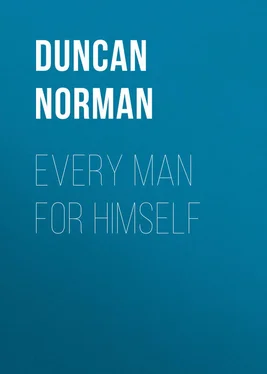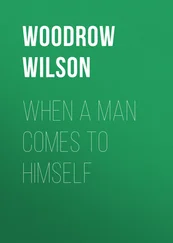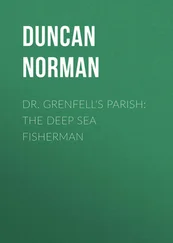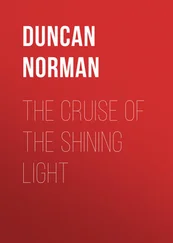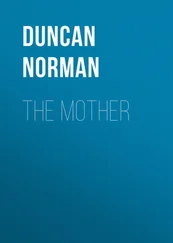Norman Duncan - Every Man for Himself
Здесь есть возможность читать онлайн «Norman Duncan - Every Man for Himself» — ознакомительный отрывок электронной книги совершенно бесплатно, а после прочтения отрывка купить полную версию. В некоторых случаях можно слушать аудио, скачать через торрент в формате fb2 и присутствует краткое содержание. Жанр: foreign_antique, foreign_prose, на английском языке. Описание произведения, (предисловие) а так же отзывы посетителей доступны на портале библиотеки ЛибКат.
- Название:Every Man for Himself
- Автор:
- Жанр:
- Год:неизвестен
- ISBN:нет данных
- Рейтинг книги:3 / 5. Голосов: 1
-
Избранное:Добавить в избранное
- Отзывы:
-
Ваша оценка:
- 60
- 1
- 2
- 3
- 4
- 5
Every Man for Himself: краткое содержание, описание и аннотация
Предлагаем к чтению аннотацию, описание, краткое содержание или предисловие (зависит от того, что написал сам автор книги «Every Man for Himself»). Если вы не нашли необходимую информацию о книге — напишите в комментариях, мы постараемся отыскать её.
Every Man for Himself — читать онлайн ознакомительный отрывок
Ниже представлен текст книги, разбитый по страницам. Система сохранения места последней прочитанной страницы, позволяет с удобством читать онлайн бесплатно книгу «Every Man for Himself», без необходимости каждый раз заново искать на чём Вы остановились. Поставьте закладку, и сможете в любой момент перейти на страницу, на которой закончили чтение.
Интервал:
Закладка:
“‘Dear God!’ says I.
“Jowl was now but a shape in the snow. ‘That you, Tumm?’ says he. ‘What you sayin’?’
“’ Why didn’t you take time t’ look ?’ says I. ‘Oh, Jowl! why didn’t you take time?’
“‘T’ look?’ says he.
“‘Dear God!’
“‘What you sayin’ that for, Tumm?’ says he. ‘What you mean, Tumm? … My God!’ says he, ‘what is I gone an’ done? Who was that, Tumm? My God! Tell me! What is I done?’
“I couldn’t find no words t’ tell un.
“‘Oh, make haste,’ says he, ‘afore I drifts away!’
“‘Dear God!’ says I, ‘’twas Toby!’
“An’ he fell flat on the ice…An’ I didn’t see Jowl no more for four year. He was settled at Mad Tom’s Harbor then, where you seed un t’-day; an’ his wife was dead, an’ he didn’t go no more t’ the Labrador, nor t’ the ice, but fished the Mad Tom grounds with hook-an’-line on quiet days, an’ was turned timid, they said, with fear o’ the sea…”
The Good Samaritan ran softly through the slow, sleepy sea, bound across the bay to trade the ports of the shore.
“I tells you, sir,” Tumm burst out, “’tis hell. Life is! Maybe not where you hails from, sir; but ’tis on this coast. I ’low where you comes from they don’t take lives t’ save their own?”
“Not to save their own,” said I.
He did not understand.
III – THE MINSTREL
Salim Awad, poet, was the son of Tanous – that orator. Having now lost at love, he lay disconsolate on his pallet in the tenement overlooking the soap factory. He would not answer any voice; nor would he heed the gentle tap and call of old Khalil Khayyat, the tutor of his muse; nor would he yield his sorrow to the music of Nageeb Fiani, called the greatest player in all the world. For three hours Fiani, in the wail and sigh of his violin, had expressed the woe of love through the key-hole; but Salim Awad was not moved. No; the poet continued in desolation through the darkness of that night, and through the slow, grimy, unfeeling hours of day. He dwelt upon Haleema, Khouri’s daughter – she (as he thought) of the tresses of night, the beautiful one. Salim was in despair because this Haleema had chosen to wed Jimmie Brady, the truckman. She loved strength more than the uplifted spirit; and this maidens may do, as Salim knew, without reproach or injury.
When the dusk of the second day was gathered in his room, Salim looked up, eased by the tender obscurity. In the cobble-stoned street below the clatter of traffic had subsided; there were the shuffle and patter of feet of the low-born of his people, the murmur of voices, soft laughter, the plaintive cries of children – the dolorous medley of a summer night. Beyond the fire-escape, far past the roof of the soap factory, lifted high above the restless Western world, was the starlit sky; and Salim Awad, searching its uttermost depths, remembered the words of Antar, crying in his heart: “ I pass the night regarding the stars of night in my distraction. Ask the night of me, and it will tell thee that I am the ally of sorrow and of anguish. I live desolate; there is no one like me. I am the friend of grief and of desire. ”
The band was playing in Battery Park; the weird music of it, harsh, incomprehensible, an alien love-song —
“Hello, mah baby,
Hello, mah honey,
Hello, mah rag-time girl!”
drifted in at the open window with a breeze from the sea. But by this unmeaning tumult the soul of Salim Awad, being far removed, was not troubled; he remembered, again, the words of Antar, addressed to his beloved, repeating: “ In thy forehead is my guide to truth; and in the night of thy tresses I wander astray. Thy bosom is created as an enchantment. O may God protect it ever in that perfection! Will fortune ever, O daughter of Malik, ever bless me with thy embrace? That would cure my heart of the sorrows of love. ”
And again the music of the band in Battery Park drifted up the murmuring street,
“ Just one girl,
Only just one girl!
There are others, I know, but they’re not my pearl.
Just one girl,
Only just one girl!
I’d be happy forever with just one girl!”
and came in at the open window with the idle breeze; and Salim heard nothing of the noise, but was grateful for the cool fingers of the wind softly lifting the hair from his damp brow.
It must be told – and herein is a mystery – that this same Salim, who had lost at love, now from the darkness of his tenement room contemplating the familiar stars, wise, remote, set in the uttermost heights of heaven beyond the soap factory, was by the magic of this great passion inspired to extol the graces of his beloved Haleema, Khouri’s daughter, star of the world, and to celebrate his own despair, the love-woe of Salim, the noble-born, the poet, the lover, the brokenhearted. Without meditation, as he has said, without brooding or design, as should occur, but rather, taking from the starlit infinitude beyond the soap factory, seizing from the mist of his vision and from the blood of agony dripping from his lacerated heart, he fashioned a love-song so exquisite and frail, so shy of contact with unfeeling souls, that he trembled in the presence of this beauty, for the moment forgetting his desolation, and conceived himself an instrument made of men, wrought of mortal hands, unworthy, which the fingers of angels had touched in alleviation of the sorrows of love.
Thereupon Salim Awad arose, and he made haste to Khalil Khayyat to tell him of this thing…
This same Khalil Khayyat, lover of children, that poet and mighty editor, the tutor of the young muse of this Salim – this patient gardener of the souls of men, wherein he sowed seeds of the flowers of the spirit – this same Khalil, poet, whose delight was in the tender bloom of sorrow and despair – this old Khayyat, friend of Salim, the youth, the noble-born, sat alone in the little back room of Nageeb Fiani, the pastry-cook and greatest player in all the world. And his narghile was glowing; the coal was live and red, showing as yet no gray ash, and the water bubbled by fits and starts, and the alien room, tawdry in its imitation of the Eastern splendor, dirty, flaring and sputtering with gas, was clouded with the sweet-smelling smoke. To the coffee, perfume rising with the steam from the delicate vessel, nor to the rattle of dice and boisterous shouts from the outer room, was this Khalil attending; for he had the evening dejection to nurse. He leaned over the green baize table, one long, lean brown hand lying upon Kawkab Elhorriah of that day, as if in affectionate pity, and his lean brown face was lifted in a rapture of anguish to the grimy ceiling; for the dream of the writing had failed, as all visions of beauty must fail in the reality of them, and there had been no divine spark in the labor of the day to set the world aflame against Abdul-Hamid, Sultan, slaughterer.
To him, then, at this moment of inevitable reaction, the love-lorn Salim, entering in haste.
“Once more, Salim,” said Khalil Khayyat, sadly, “I have failed.”
Salim softly closed the door.
“I am yet young, Salim,” the editor added, with an absent smile, in which was no bitterness at all, but the sweetness of long suffering. “I am yet young,” he repeated, “for in the beginning of my labor I hope.”
Salim turned the key.
“I am but a child,” Khalil Khayyat declared, his voice, now lifted, betraying despair. “I dream in letters of fire: I write in shadows. In my heart is a flame: from the point of my pen flows darkness. I proclaim a revolution: I hear loud laughter and the noise of dice. Salim,” he cried, “I am but a little child: when night falls upon the labor of my day I remember the morning!”
Читать дальшеИнтервал:
Закладка:
Похожие книги на «Every Man for Himself»
Представляем Вашему вниманию похожие книги на «Every Man for Himself» списком для выбора. Мы отобрали схожую по названию и смыслу литературу в надежде предоставить читателям больше вариантов отыскать новые, интересные, ещё непрочитанные произведения.
Обсуждение, отзывы о книге «Every Man for Himself» и просто собственные мнения читателей. Оставьте ваши комментарии, напишите, что Вы думаете о произведении, его смысле или главных героях. Укажите что конкретно понравилось, а что нет, и почему Вы так считаете.
